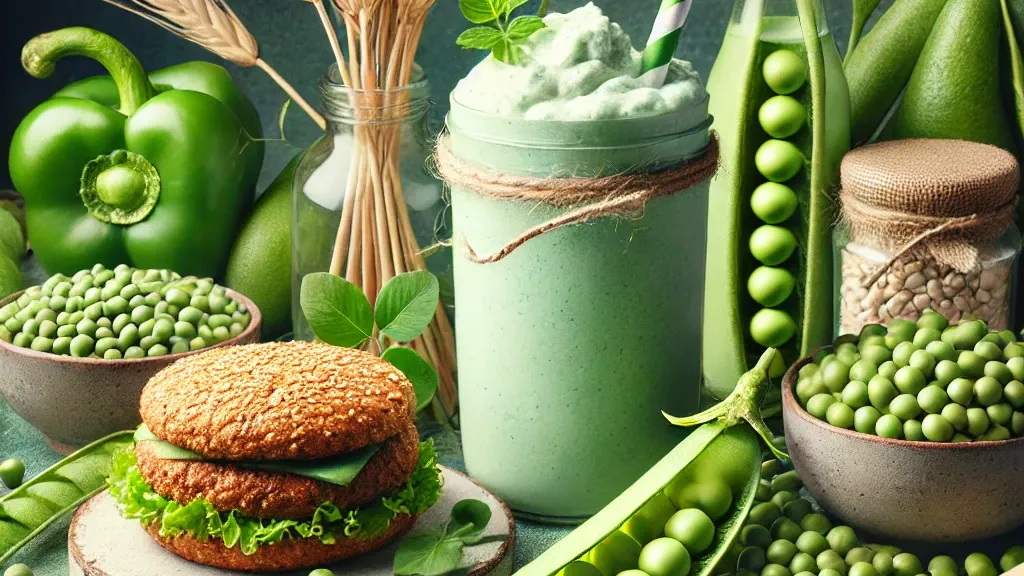The global pea protein market is on track for remarkable growth, with an anticipated value of USD 2.1 billion in 2024 and a forecasted expansion to USD 3.7 billion by 2029, driven by a strong compound annual growth rate (CAGR) of 12.0%. This upward trend underscores the increasing consumer preference for health-focused, plant-based, and eco-friendly dietary solutions.
Health & Wellness Trends Propel Pea Protein Market Growth
Rising awareness around health and wellness is a key driver behind the demand for pea protein. Consumers are gravitating towards products that support muscle growth, assist with weight management, and provide a sense of fullness. Pea protein, rich in essential nutrients, easily digestible, and free from common allergens such as soy and dairy, aligns perfectly with these preferences. Its clean-label appeal, characterized by minimal processing and natural origins, enhances consumer trust and loyalty.
This versatility makes pea protein a valuable component in plant-based foods and beverages, catering especially to vegan and vegetarian diets. The COVID-19 pandemic further accelerated the adoption of plant-based lifestyles, with Europe leading the market in 2024 due to its economic stability and heightened demand for clean-label, plant-based products.
Get PDF Copy: https://www.marketsandmarkets.com/pdfdownloadNew.asp?id=36916504
Environmental Benefits Fuel Popularity
The environmental advantages of pea protein are another significant factor driving its adoption. As consumers increasingly prioritize reducing their carbon footprints, plant-based proteins emerge as sustainable alternatives to animal-based options. With lower resource requirements and reduced greenhouse gas emissions, pea protein is a compelling choice for environmentally conscious individuals and aligns seamlessly with global sustainability goals.

Leading Innovators in the Market
Several prominent pea protein manufacturers are shaping the future of the industry through innovation and expansion:
- Roquette Frères (France): A global leader in plant-based ingredients, Roquette offers pea protein under its NUTRALYS brand. Renowned for its binding, thickening, and texturizing properties, NUTRALYS is a preferred ingredient in food formulations promoting weight management, muscle development, and blood glucose regulation.
- ADM (USA): With a century-long legacy, ADM provides a diverse portfolio of nutritional solutions, including pea protein, reinforcing its strong international presence.
- Ingredion (USA): Known for its range of pea protein products—isolates, concentrates, and flours—Ingredion serves various dietary needs across global markets.
- Kerry Group (Ireland): Specializing in taste and nutrition, Kerry delivers innovative pea protein solutions tailored to meet the growing demand for plant-based ingredients in the food and beverage sector.
- Glanbia PLC (Ireland): Offering high-quality pea protein with exceptional functional qualities like flavor and solubility, Glanbia supports a wide spectrum of nutrition-focused manufacturers.
Schedule a call with our Analysts to discuss your business needs
https://www.marketsandmarkets.com/speaktoanalystNew.asp?id=36916504
A Promising Outlook for Pea Protein
The future of the pea protein market looks bright, driven by consumer demand for healthier and more sustainable food options. Key factors like wellness trends, environmental consciousness, and the rise of plant-based diets are solidifying pea protein’s role as a cornerstone ingredient in modern nutrition. Manufacturers are responding with innovative products and broader offerings, ensuring the market remains dynamic and responsive to evolving consumer needs.
As the global shift toward plant-based, sustainable diets continues, pea protein is set to remain a pivotal force, not just as a trend but as a transformative element in the food industry.
